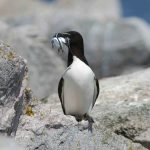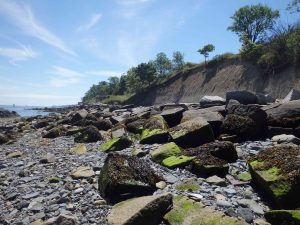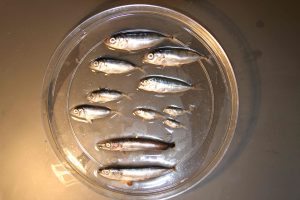In the Staudinger lab, we seek to address the unprecedented challenges that global change brings to the fields of fisheries ecology, coastal management, and marine conservation.
To achieve our research goals, we incorporate statistical models, data synthesis, laboratory, and field methodologies. We work closely with a range of partners to coproduce science that is directly usable for decision making and the sustainable management of natural resources. We strive to make our science broadly accessible and communicate our findings in multiple formats to help educate and inspire the next generation of scientists.
We believe inclusive and holistic approaches foster stronger scientific outcomes. Our lab is committed to creating a safe and welcoming work environment regardless of race, gender, sexual identity, disability, religion, neurodiversity, age, socioeconomic status, and other backgrounds. We work to find creative and flexible solutions to overcome barriers to conducting science and actively practice empathy and compassion. We do not tolerate racism, ableism, bigotry, bias or discrimination of any kind.
Our research has three main themes:
Food Webs

To understand how marine species interact with each other and their environment across organismal, community, and ecosystem scales and how changes in relationships and connections affect ecosystem services. We work across a wide range of coastal and marine habitats, spanning the intertidal zone to the deep sea. We have a particular interest in the ecosystem roles of forage fishes such as squid, sand lances, herring, and how their abundance and distribution supports the energetic demands of protected and managed predatory fishes, marine mammals, and seabirds.
Climate Change

To assess climate change impacts on socioecological systems and work to build effective and equitable climate adaptation strategies that reduce risk. Key focal areas include measuring and evaluating the consequences of shifting phenology, understanding how climate change is modifying emergent properties of ecosystems, and conducting climate change vulnerability assessments.
Diversity

From a social and cultural perspective, we integrate diverse knowledge systems and ways of knowing to understand how the natural world is structured and functions. From an ecological point of view, we holistically consider how biodiversity serves as the building blocks for marine ecosystems and increases resilience to stress and disturbance.
